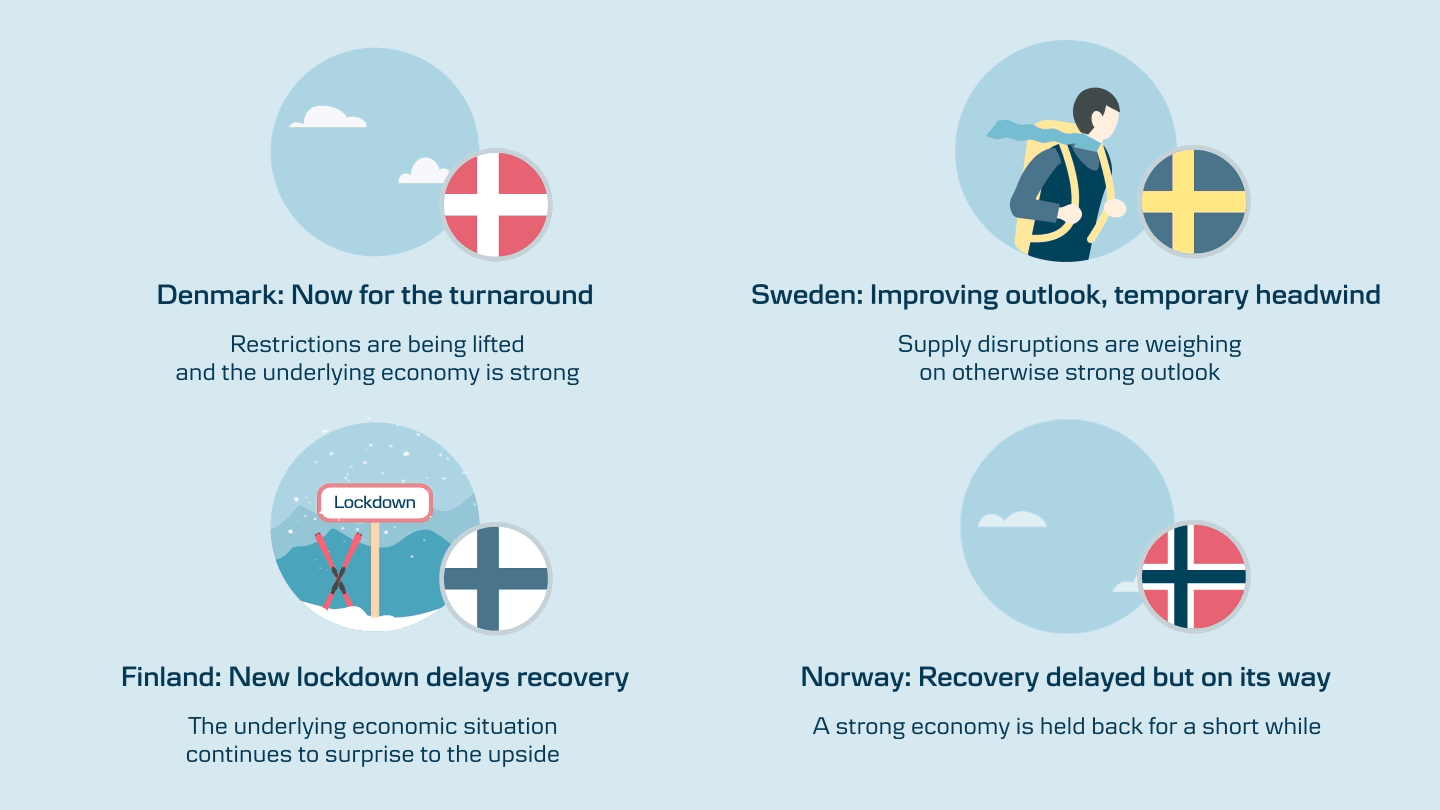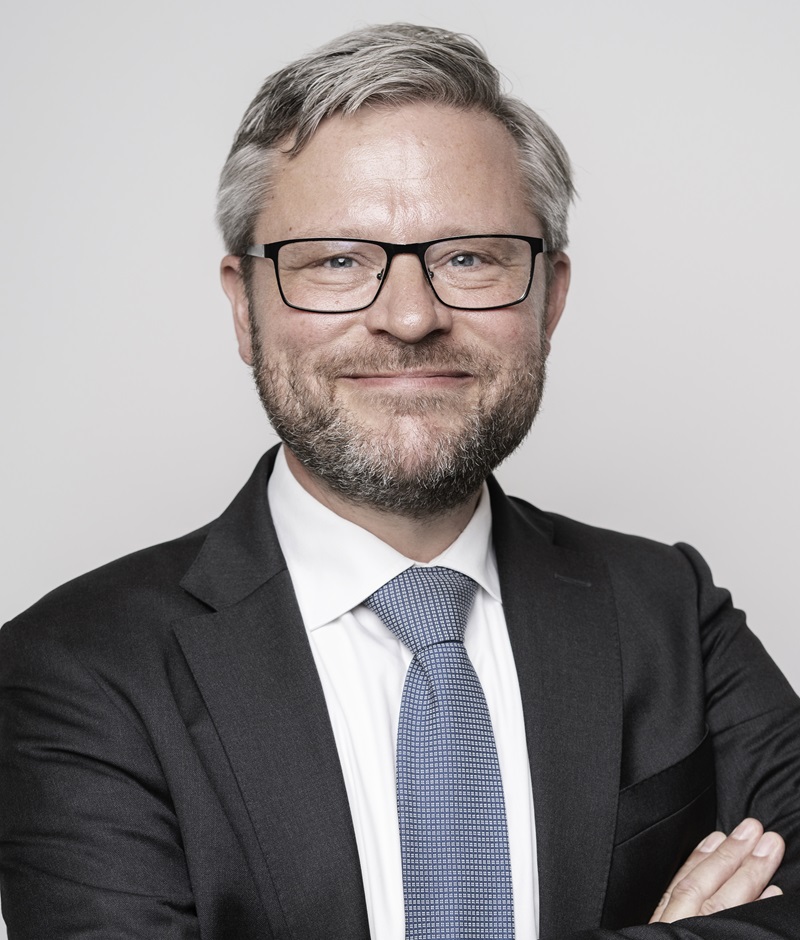Highlights

 Content is loading
Content is loadingThe COVID-19 crisis appears to be easing, so presumably we can put most of the problems behind us in the coming months across the Nordics and globally. However, in the short term at least, progress is not universally positive, as several countries are experiencing rising infection rates and vaccine rollouts that are not happening as fast as hoped, writes our macroeconomic team in Nordic Outlook.

The COVID-19 crisis seems to be easing, so we can finally look forward to putting most of the problems behind us in the coming months across the Nordics and globally as milder weather weakens the virus and vaccines make it much less of a danger. We expect this will pave the way for a solid economic recovery.
Industries not in lockdown are already making good progress, not least manufacturing, which is being supported by strong global demand for goods. As the rest of the economy reopens, we should be able to look forward to high GDP and jobs growth.
Uncertainty on exact timing of the recovery
However, in the short term at least, progress is not universally positive, as several countries are experiencing rising infection rates and vaccine rollouts that are not happening as fast as hoped. Uncertainty remains on the exact timing of the recovery and of course the magnitude.
This is not a situation that we have been in before. There is a risk the recovery will be more like after a normal crisis and unfold over several years, as well as a risk that pent-up demand will be released very quickly. Just how complete the reopening will be is another uncertainty, in particular to what extend travel and tourism will soon return to normal.

This is not a situation that we have been in before. There is a risk the recovery will be more like after a normal crisis and unfold over several years, as well as a risk that pent-up demand will be released very quickly.
Las OlsenChief economist, Danske Bank
Nordics doing relatively well
The crisis has hurt the Nordic economies, but the decline has been significantly less than elsewhere in Europe. While there are differences in business structure and lockdown policies, performance across the Nordics has been remarkably homogenous.
One common factor in the policy response has been a strong focus on keeping unrestricted businesses, such as manufacturing and construction, up and running, for example by avoiding curfews and stay-at-home orders.
Policy response supportive
Nordic governments have loosened purse strings to help citizens and businesses through the crisis. The milder recession means the cost for government has been less than elsewhere and generally also less than anticipated, so there is no urgent need to restore public finances – although Finland still faces a longer-term challenge.
Monetary policy has also been eased, especially in Norway, which started the crisis with positive interest rates that could be cut. Norway is also likely to be one of the first countries to hike rates again this year, while we expect a weak inflation outlook to keep rates in check in Sweden and the euro area. Denmark, meanwhile, is actually likely to see a modest rate cut.

.png?h=128&iar=0&w=128&rev=c0456076148343a69ec27218e9fa39aa&hash=5367D3AD7CFBE8E78181A6587FAB2790)